
Advertise on podcast: Notes from America with Kai Wright
Rating
4.3 from
Country
This podcast has
153 episodes
Language
Publisher
Explicit
No
Date created
2016/09/15
Average duration
41 min.
Release period
5 days
Description
Notes from America with Kai Wright is a show about the unfinished business of our history, and its grip on our future.
Social media
Check Notes from America with Kai Wright social media presence
Podcast episodes
Check latest episodes from Notes from America with Kai Wright podcast
It's Giving ‘Hell No’ — Danielle Brooks On Becoming ‘The Color Purple’s’ Sofia
2024/02/23
There’s something about Sofia.
The iconic character was first born within the pages of Alice Walker’s canonical 1982 novel, “The Color Purple.” She is a fierce, principled Black woman — friend to the protagonist Celie and wife to Celie’s stepson Harpo, who tarnishes their relationship with violence. But what is most notable about Sofia is that she will not stand down, even against the backdrop of racism and sexism in the South in the 1930s.
Today, actor Danielle Brooks is Sofia for an entirely new generation of audiences, taking on the role for the 2023 musical film “The Color Purple,” and earning an Academy Award nomination for Best Performance By An Actress In A Supporting Role.
“Sofia taught me that I have all that I need inside of me,” Brooks tells Notes from America.
In this episode, she and Kai sit down for a conversation about a character who has been instrumental to her life and career.
And hell no, that’s not all! Hear their full conversation on Oscar night, March 10, at 6 p.m. ET on the Notes from America broadcast. Check your local public radio listings for more information about where to tune in, or stream the show at www.wnyc.org.
Tell us what you think. We're @noteswithkai on Instagram and X (Twitter). Email us at notes@wnyc.org. Send us a voice message by recording yourself on your phone and emailing us, or record one here.
Notes from America airs live on Sundays at 6 p.m. ET., and listeners to the broadcast and podcast are invited to join the conversation at 844-745-TALK(8255). Podcast episodes are lightly edited from our live broadcasts.
more
A Palestinian-American Victim of American Gun Violence Becomes A Reluctant Poster Child
2024/02/19
Hisham Awartani was visiting family in Vermont over Thanksgiving break in 2023 when he and two of his friends were shot. All three victims are of Palestinian descent and were wearing traditional Palestinian scarves when the attack happened. While his friends made full physical recoveries, 20-year-old Awartani now has to grapple with a new life that involves using a wheelchair. In this episode, producer Suzanne Gaber meets with Awartani on his last day in rehab before heading back to Brown University, where the shooting has made him a poster child for a cause that’s deeply personal for him: the movement to free Palestine from Israeli occupation.
Kai then speaks with William Youmans, an associate professor of Media and Public Affairs at the George Washington University, about Hisham’s story and why so many people have become attached to it, revealing much about how American media has reported Palestinian narratives since Hamas’ October 7th attack in Israel. Youmans also takes a look at how Palestinian-American identity in the U.S. has changed over time.
Companion Listening: “It’s Worse Than Ever,” an episode addressing concerns about Arab-American mental health in the wake of events from October 7th.
Tell us what you think. We're @noteswithkai on Instagram and X (Twitter). Email us at notes@wnyc.org. Send us a voice message by recording yourself on your phone and emailing us, or record one here.
Notes from America airs live on Sundays at 6 p.m. ET., and listeners to the broadcast and podcast are invited to join the conversation at 844-745-TALK(8255). Podcast episodes are lightly edited from our live broadcasts.
more
Kai Wright Presents Blindspot Episode 3: ‘Women Don’t Get AIDS, They Just Die From It’
2024/02/16
From the very earliest days of the epidemic, women got infected with HIV and died from AIDS — just like men. But from the earliest days, this undeniable fact was largely ignored — by the public, the government and even the medical establishment. The consequences of this blindspot were profound. Many women didn’t know they could get HIV.
But in the late 1980s, something remarkable happened. At a maximum security prison in upstate New York, a group of women came together to fight the terror and stigma that was swirling in the prison as more and more women got sick with HIV and AIDS. Katrina Haslip was one of them. An observant Muslim and former sex worker, she helped found and create AIDS Counseling and Education (ACE), one of the country’s first HIV and AIDS organizations for women. And when she got out of prison, she kept up the work: she joined forces with women activists on the outside to be seen, heard and treated with dignity. This is her story — and the story of scores of women like her who fought to change the very definition of AIDS.
This episode title comes from a Gran Fury poster. Gran Fury was an artist collective that worked in collaboration with ACT UP and created public art in response to the HIV and AIDS epidemic.
Resources: "The Invisible Epidemic: The Story of Women And AIDS" by Gena Corea.
Listen to more episodes and subscribe to Blindspot here.
Do you have a relationship with this history? Share it with Kai at 844-745-8255. Then, on February 25th from 6-8pm EST, join Kai for a two-hour special on the early days of the AIDS epidemic on Notes From America – we’ll share some of your stories and take calls live. Listen on your local public radio station or stream live at www.wnyc.org.
Blindspot is a co-production of The HISTORY® Channel and WNYC Studios, in collaboration with The Nation Magazine.
Tell us what you think. Email us at notes@wnyc.org. Send us a voice message by recording yourself on your phone and emailing us, or record one here. We’re also on Instagram and X (Twitter) @noteswithkai.
more
Intercultural Relationships Are More Common, But Are They Less Taboo?
2024/02/12
We’re living in polarized times – particularly, when it comes to questions of identity, such as race and culture and gender. At the same time, our growing cultural diversity is at this point baked into the future. Within the next 20 years, the majority of Americans will identify as something other than white; that’s already the case in four states. In the 2020 Census, nearly 40 million people identified themselves as multiracial, almost a 300 percent increase from a decade before.
Just in time for Valentine’s Day, host Kai Wright opens the phones to callers to share what they’ve learned about themselves from finding love across differences. Kai’s joined by Marya T. Mtshali, assistant professor of sociology at Bucknell University who studies intersectional theory, and author of the forthcoming book, “(In)Visible Terrains: Race, Gender, and Heterosexuality in the Lives of Interracial Couples.” They break down the real statistics behind our societal perceptions about intercultural relationships of all kinds. Lamar Dawson, host for TikTok Radio on SiriusXM (Channel 4) and author of the The Black Gay Man's Guide To Interracial Dating.
Missed the conversation? It’s not too late to share your thoughts! Call us at 844-745-TALK(8255) and tell us: If you are, or have been, in an intimate relationship with someone of a different racial, ethnic, or cultural background, what is something you’ve learned about yourself?
Tell us what you think. We're @noteswithkai on Instagram and X (Twitter). Email us at notes@wnyc.org. Send us a voice message by recording yourself on your phone and emailing us, or record one here.
Notes from America airs live on Sundays at 6 p.m. ET., and listeners to the broadcast and podcast are invited to join the conversation at 844-745-TALK(8255). Podcast episodes are lightly edited from our live broadcasts.
more
Kai Wright Presents Blindspot Episode 2: If I Didn’t Have HIV, I Wouldn’t Have Met You
2024/02/09
It’s the 1980s — Harlem, USA — and the 17th floor of the area’s struggling public hospital is filling up with infants and children who arrive and then never leave. Some spend their whole lives on the pediatric ward, celebrating birthdays, first steps and first words with the nurses and doctors who’ve become their surrogate family. Welcome to Harlem Hospital at the height of the HIV and AIDS epidemics.
When the nurses and doctors at this community hospital first began to see infants suffering from an unusual wasting disease, they were alarmed. They had heard that a strange new illness was killing gay men, but no one was talking about women and children. Soon, however, it became clear that HIV was sweeping through Harlem, sickening mothers who then passed it — unknowingly — to their kids. As the crisis grew, AIDS turned the pediatrics ward of Harlem Hospital into a makeshift home — and a makeshift family — for kids who were either too sick to go home, or who no longer had families to go home to.
Listen to more episodes and subscribe to Blindspot here.
Voices in this episode include:
Dr. Margaret Heagarty was a doctor who ran the pediatric department at Harlem Hospital Center for nearly 20 years. She died in 2022. Archival interview with Margaret Heagarty comes from the Columbia Center for Oral History.Dr. Stephen Nicholas was a pediatrician at Harlem Hospital Center for two decades.Maxine Frere, a lifelong Harlem resident, is a retired nurse who spent the entirety of her 40-year career at Harlem Hospital Center.Monica Digrado was a pediatric nurse at Harlem Hospital Center.Victor Reyes was born at Harlem Hospital Center and spent much of his childhood receiving treatment and care at the hospital’s pediatric AIDS unit.
Blindspot is a co-production of The HISTORY® Channel and WNYC Studios, in collaboration with The Nation Magazine.
A companion photography exhibit by Kia LaBeija featuring portraits from the series is on view through March 11 at The Greene Space at WNYC. The photography for Blindspot was supported by a grant from the Economic Hardship Reporting Project, a nonprofit organization that promotes coverage of social inequality and economic justice.
Tell us what you think. Email us at notes@wnyc.org. Send us a voice message by recording yourself on your phone and emailing us, or record one here. We’re also on Instagram and X (Twitter) @noteswithkai.
more
Voter Vibe Check: Anti-Trump Conservatives On Republican Party Politics In 2024
2024/02/05
With the Iowa, New Hampshire and South Carolina primaries behind us, the 2024 election cycle is well underway.
Donald J. Trump isn’t the 2024 Republican presidential candidate yet, but his victories in Iowa and New Hampshire suggest that it will be smooth sailing to the GOP nomination for the former president once again — notwithstanding his several impending criminal cases and tons of political baggage.
In this, the first of a series of conversations leading up to the 2024 presidential election, host Kai Wright asks conservative voters who are not aligned with Trump or the MAGA movement some key questions. What do anti-Trump conservatives care about? What space do they occupy in this political landscape? How do they make their voices heard?
Kai also speaks with Theodore R. Johnson, senior advisor at New America focusing on race and Black electoral behavior, and a contributing columnist at the Washington Post; and with David Siders, politics editor at POLITICO who leads their reporting series “Road Trip,” which introduces readers to voters and local political players across the nation.
Tell us what you think. We're @noteswithkai on Instagram and X (Twitter). Email us at notes@wnyc.org. Send us a voice message by recording yourself on your phone and emailing us, or record one here.
Notes from America airs live on Sundays at 6 p.m. ET., and listeners to the broadcast and podcast are invited to join the conversation at 844-745-TALK(8255). Podcast episodes are lightly edited from our live broadcasts.
more
Kai Wright Presents Blindspot Episode 1: Mourning In America
2024/02/02
Valerie Reyes-Jimenez called it “The Monster.” That’s how some people described HIV and AIDS in the 1980s. Valerie thinks as many as 75 people from her block on New York City’s Lower East Side died. They were succumbing to an illness that was not recognized as the same virus that was killing young, white, gay men just across town in the West Village.
At the same time, in Washington, D.C., Gil Gerald, a Black LGBTQ+ activist, saw his own friends and colleagues begin to disappear, dying out of sight and largely ignored by the wider world.
In the first episode of Blindspot: The Plague in the Shadows, host Kai Wright shares how HIV and AIDS was misunderstood from the start — and how this would shape the reactions of governments, the medical establishment and numerous communities for years to come.
Listen to more episodes and subscribe to Blindspot here.
Voices in this episode include:
Valerie Reyes-Jimenez is an HIV-positive woman, activist, and organizer with Housing Works. She saw the AIDS crisis develop from a nameless monster into a pandemic from her home on New York City’s Lower East Side.Dr. Larry Altman was one of the first full-fledged medical doctors to work as a daily newspaper reporter. He started at The New York Times in 1969.Dr. Anthony Fauci was director of the National Institutes of Health’s National Institute of Allergy and Infectious Disease from 1984 to 2022. Known most recently for his work on Covid-19, Dr. Fauci was also a leading figure in the fight against HIV and AIDS.Gil Gerald is a Black HIV and AIDS activist and writer, who co-founded the National Coalition of Black Lesbians and Gays.Phill Wilson is the founder of the Black AIDS Institute, AIDS policy director for the city of Los Angeles at the height of the epidemic, and a celebrated AIDS activist in both the LGBTQ+ and Black communities since the early 1980s.Dr. Margaret Heagarty ran the pediatrics department of Harlem Hospital Center for 22 years. She died in December 2022.
Blindspot is a co-production of The HISTORY® Channel and WNYC Studios, in collaboration with The Nation Magazine.
A companion photography exhibit by Kia LaBeija featuring portraits from the series is on view through March 11 at The Greene Space at WNYC. Photography by Kia LaBeija is supported in part by the Economic Hardship Reporting Project.
Tell us what you think. Email us at notes@wnyc.org. Send us a voice message by recording yourself on your phone and emailing us, or record one here. We’re also on Instagram and X (Twitter) @noteswithkai.
more
What A Segregated Mental Asylum Can Tell Us About Health Care in the US Today
2024/01/29
If you were Black with mental illness in the early 1900s, you couldn’t seek help just anywhere. You’d have to go to a segregated asylum like Maryland’s Crownsville Hospital, formerly known as the Hospital for the Negro Insane. The facility opened in 1911 when 12 men were brought into the woods outside of Baltimore and told to start working. They were tasked with creating one of the first asylums for Black Americans with mental illnesses, and they would soon become its first patients.
Kai speaks with NBC News correspondent Antonia Hylton about her latest book, “MADNESS: Race and Insanity in a Jim Crow Asylum,” which breaks down the dark history of one psychiatric institution, and highlights the hope it offered Black patients. And we hear from listeners around the country about their own experiences with mental health treatment and care in the U.S.
Tell us what you think. We're @noteswithkai on Instagram and X (Twitter). Email us at notes@wnyc.org. Send us a voice message by recording yourself on your phone and emailing us, or record one here.
Notes from America airs live on Sundays at 6 p.m. ET. The podcast episodes are lightly edited from our live broadcasts.
more
Kai Wright Hosts Blindspot: The Plague In The Shadows
2024/01/26
The latest season of the Blindspot podcast brings listeners voices of people who were affected in the early years of the AIDS epidemic, when so little was known about HIV, and so much was misunderstood. It’s also hosted by a familiar voice – Kai Wright, who has covered the impact of HIV and AIDS in communities of color throughout his career as a journalist. Season three of the show, a co-production of The HISTORY Channel and WNYC Studios, is called “The Plague In The Shadows” and Kai introduces us to the series, which you can listen to and subscribe to here.
Tell us what you think. Email us at notes@wnyc.org. Send us a voice message by recording yourself on your phone and emailing us, or record one here. We’re also on Instagram and X (Twitter) @noteswithkai.
more
Doom. Denial. ‘Hopium.’ What About Climate Action?
2024/01/22
The hottest year on record was 2023, but we're expected to make the same claim at the end of this calendar year. As the world warms and reports of historic flooding, wildfires, tornadoes and droughts continue to permeate the news, it's easy to feel burdened with anxiety about the future of our planet. But there are moments of hope to hold on to. Are they enough to shift to an optimistic outlook about climate change? And how much does hope matter to designing solutions?
Kai talks with Rikki Held, the 22-year-old lead plaintiff in Held v. Montana, a lawsuit brought by the group Our Children’s Trust. Held and her co-plaintiffs won an historic victory recently when a court ruled that the state violated their right to a “clean and healthful environment.” Then, author and activist Liza Featherstone shares insight from her essay “The Case Against Both Climate Hope and Climate Despair,” in The New Republic. And we hear listener stories about progress they’ve witnessed in their own communities.
This episode was originally published on August 21, 2023.
Join our conversations. Email us at notes@wnyc.org. Send us a voice message by recording yourself on your phone and emailing us, or record one here. We’re also on Instagram and X (Twitter) @noteswithkai.
Notes from America airs live on Sundays at 6 p.m. ET. The podcast episodes are lightly edited from our live broadcasts.
more
Reclaiming Woke: Celebrating The Legacy Of Martin Luther King Jr. Live At The Apollo
2024/01/15
Dr. Martin Luther King Jr.’s final Sunday sermon was titled, “Remaining Awake Through A Great Revolution.” In other words, he was advising us to stay woke. Today, that term has become a political slur. “Woke” is at the very center of our culture wars – especially as we enter a contentious election year. But like a lot of slang words, woke has an origin story that’s got little to do with how it’s used now.
Host Kai Wright is joined by Alvin Singh, great-great nephew Lead Belly and producer of the documentary Lead Belly: The Man Invented Rock & Roll. Together, they explore the folk singer who popularized the term, and the landmark civil rights case that inspired him to issue a note of caution to Black America. Then, Juliet Hooker, Royce Family Professor of Teaching Excellence in Political Science at Brown University and author of Black Grief/White Grievance: The Politics of Loss, and Maimouna “Mumu Fresh” Youssef, Grammy-nominated Afro-Indigenous singer, songwriter, and activist, join for a conversation about the current sociopolitical landscape and the true motivations behind the co-opting of “wokeness.” Plus, a live audience at the Apollo Theater contributes ideas on what we need to “stay woke” today.
This conversation was programmed as part of The Apollo’s Uptown Hall series and originally recorded on Sunday, January 14 at 2pm ET. This 18th annual co-production between The Apollo and WNYC, two of New York City’s leading media and cultural institutions, has become the city’s signature event commemorating the political, cultural, and social legacy of Dr. Martin Luther King, Jr.
Tell us what you think. Email us at notes@wnyc.org. Send us a voice message by recording yourself on your phone and emailing us, or record one here. We’re on Instagram and X (Twitter) @noteswithkai.
Notes from America airs live on Sundays at 6 p.m. ET. The podcast episodes are lightly edited from our live broadcasts.
more
What the Ozempic Craze Means for Our Personal Health
2024/01/08
Interest in Ozempic as a way to lose weight has only been outmatched by demand for the drug, which has been in short supply as celebrities and social media influencers continue to popularize its use. The Type 2 diabetes treatment, which was approved by the Food and Drug Administration in 2017, has become a catch-all term for a class of medications now used to treat obesity, including Wegovy, Zepbound and others. The efficacy of these drugs have some in the medical community pondering if we are on a path to effectively eliminating obesity by treating it as a chronic disease, rather than solely treating the diseases most often related to it.
Kai invites Dr. Fatima Cody Stanford, an obesity medicine physician scientist and associate professor of medicine at Massachusetts General Hospital, to explain how these latest weight loss treatments work, and who can (and can’t) access them. Plus, Ronald Young Jr., host of the podcast Weight For It, joins the show to share his experience and express some concerns about how Ozempic and similar drugs have dominated the conversation about our bodies and our health. And we hear from listeners around the country who weigh in with their questions and stories.
Tell us what you think. We're @noteswithkai on Instagram and X (Twitter). Email us at notes@wnyc.org. Send us a voice message by recording yourself on your phone and emailing us, or record one here.
Notes from America airs live on Sundays at 6 p.m. ET. The podcast episodes are lightly edited from our live broadcasts.
more
Podcast reviews
Read Notes from America with Kai Wright podcast reviews
mgunslinger17
2021/12/16
Insightful and relevant, but…
This show dives headfirst into topics that other shows may shy away from. It is insightful and informative. However, the more recent addition of liste...
more
JCASEA
2024/01/15
“Woke” origins?
please don't advertise an episode until it’s available (heard on political scene, the new yorker 1/15/24). sounds interesting but not there….
😉💙🙃
2024/01/09
January 9 2023 Opzempic
Ultra processed food stuffs are causing a lot of these problems re: weight that is out of control. So, too, please review BMI and it’s meaning and thu...
more
nick bartholomew name
2023/10/30
Naive and lacking nuance
Unbalanced naive and bias confirming drivel. Avoid.
softMints88
2023/10/02
Capitalize Barbie
Isn’t it interesting how racism transcends from generation to generation. It was thought in 1955 white america fear would go away by 1970, lol. Even ...
more
Zamalama69
2023/09/01
Woke and poor grammar
Very Woke.
Saigonnati
2023/04/17
Excellent
If I had to be monogamous with a podcast it would be this one. I love the balance of history, art, culture, politics…I always learn something new and ...
more
PurpkeKnight
2023/01/19
Louis Armstrong
Once again you guys knocked it out the park. Thank you for an insightful, educating and enlightening experience. As a native New Orleanian I appreciat...
more
GlennWatson
2022/08/24
If you are white
Get ready, because this show hates straight white men.
mrderekturner
2022/07/21
Kai’s talent shines through
Kai Wright had a remarkable gift to see and say things in a novel way, so that they are both fresh and deeply resonant. Highly recommend!
Podcast sponsorship advertising
Start advertising on Notes from America with Kai Wright & sponsor relevant audience podcasts
You may also like these news commentary Podcasts

4.6
2870
325
Amicus With Dahlia Lithwick | Law, justice, and the courts
Slate Podcasts
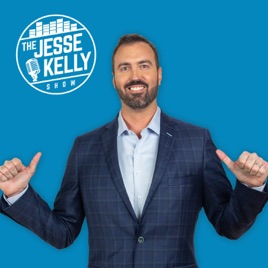
4.8
2570
2000
The Jesse Kelly Show
iHeartPodcasts
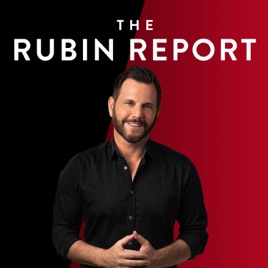
4.6
13074
1105
The Rubin Report
Dave Rubin
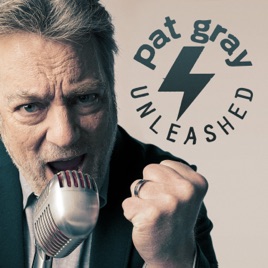
4.8
4332
1570
Pat Gray Unleashed
Blaze Podcast Network

4.4
2159
1499
What Next | Daily News and Analysis
Slate Podcasts

4.7
3596
2000
Garage Logic
PodMN | Hubbard Radio
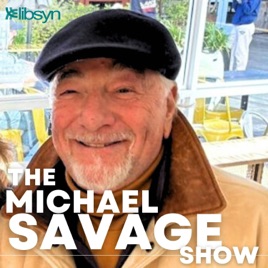
4.5
10929
688
The Michael Savage Show
Michael Savage

4.7
383
549
The Promised Podcast
TLV1 Studios

3.6
3535
600
NBC Meet the Press
NBC News
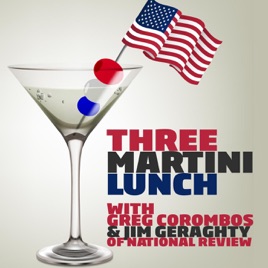
4.6
1304
1024
3 Martini Lunch Podcast
Radio America



